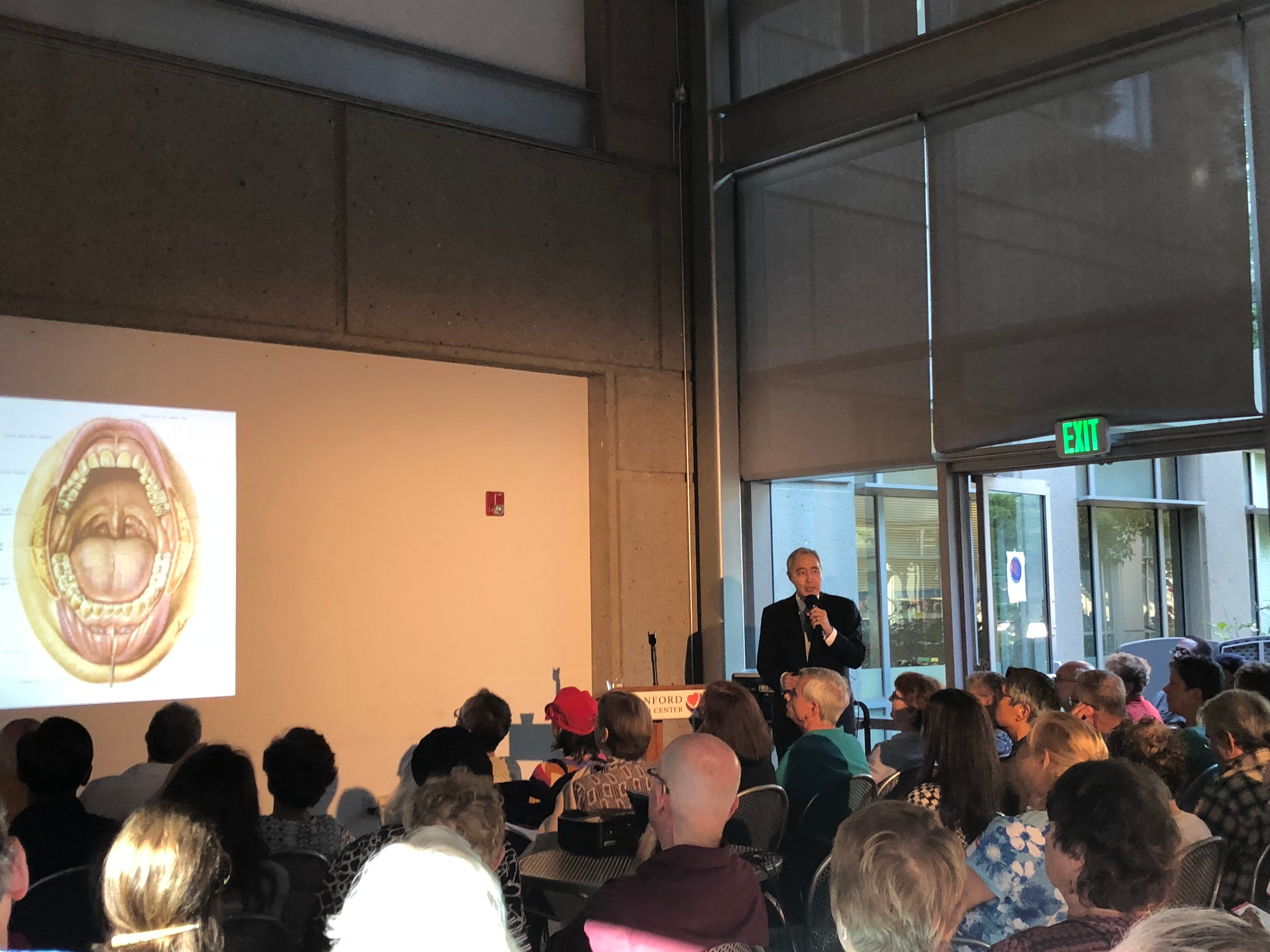Neurologist and psychiatry professor Dr. Clete Kushida spoke to more than 120 people Wednesday about common sleep disorders and the importance of sleep.
The talk took place at the Stanford Blood Center in Palo Alto — a part of Café Scientifique, an international network of informal groups that organize events highlighting science and research in local communities.
Kushida, who is also the medical director of Stanford Sleep Medicine and the Founding President of the World Sleep Society, addressed the latest methods to diagnose sleep disorders as well as standard and novel treatments for them. These treatments include Continuous Positive Airway Pressure (CPAP) machines to control airway pressure, mouthguards to keep the airway from collapsing and an electrode machine to stimulate the airway muscles and prevent them from closing.
In his presentation, Kushida shared that about 36 percent of young adults suffer from secondary to chronic sleep deprivation, and when the total sleep time in young adults is reduced by one to one and a half hours, their objective alertness can drop as much as 33 percent.
He said that the most common sleep condition seen in college students is Delayed Sleep Phase Syndrome. When afflicted by the Syndrome, a person falls asleep two or more hours past the common sleep time.
According to Kushida, this can subsequently lead to “daytime drowsiness and lowered cognitive performance.”
Adults should sleep seven or more hours per night for optimal health, according to Kushida. He said that sleeping less than this amount on a regular basis can lead to obesity, diabetes, hypertension, heart diseases, stroke and depression. It can also lead to a lower immune function, impaired performance and greater risk of accidents.
“I learned that sleep is the basis of all daily function,” 14-year-old audience member Cary Lai said.
Kushida also discussed two other underlying causes of sleep deprivation: sleep apnea and insomnia. Sleep apnea, a condition affecting 24 percent of men and 9 percent of women in which the nasal airway gets constricted causing a lack of oxygen flow to the brain, can lead to an individual waking up hundreds of times per night to gasp for air.
Kushida debunked the myth that sleep apnea is present only in those who are obese, instead focusing on the dangers of leaving it ignored. Obstructive sleep apnea can lead to heart attacks, strokes and even cardiac arrest, according to Kushida.
“Not treating sleep apnea can dramatically increase mortality, especially cardiovascular mortality,” Kushida said.
Insomnia, according to Kushida, comes in two forms: “idiopathic,” which can afflict the patient throughout his or her lifetime, and “psychophysiological,” which is caused by habits that prevent patients from falling asleep, and can be triggered by lifestyle changes.
“Trauma, such as loss of job and divorce, can affect brain chemistry, which can lead to chronic insomnia if not treated,” Dr. Kushida said.
Several people at the event were there to learn about the latest research in sleep. Dr. Avinash Patil of University of California, San Francisco, came to understand the relationship between sleep and mental disorders.
“In psychiatric patients, in addition to mental health, their sleep pattern changes,” Patil said. “[In the seminar] I learned about new techniques and new devices that can be used for managing sleep.”
Victoria Somerville, Marketing Specialist at the Stanford Blood Center and the organizer of the event for Café Scientifique, was pleased at the turnout and how strongly the topic of sleep resonated with the community.
“Everyone needs [sleep] and most people don’t get enough of it,” Somerville said.
Contact Manat Kaur at manat ‘at’ object.live.
